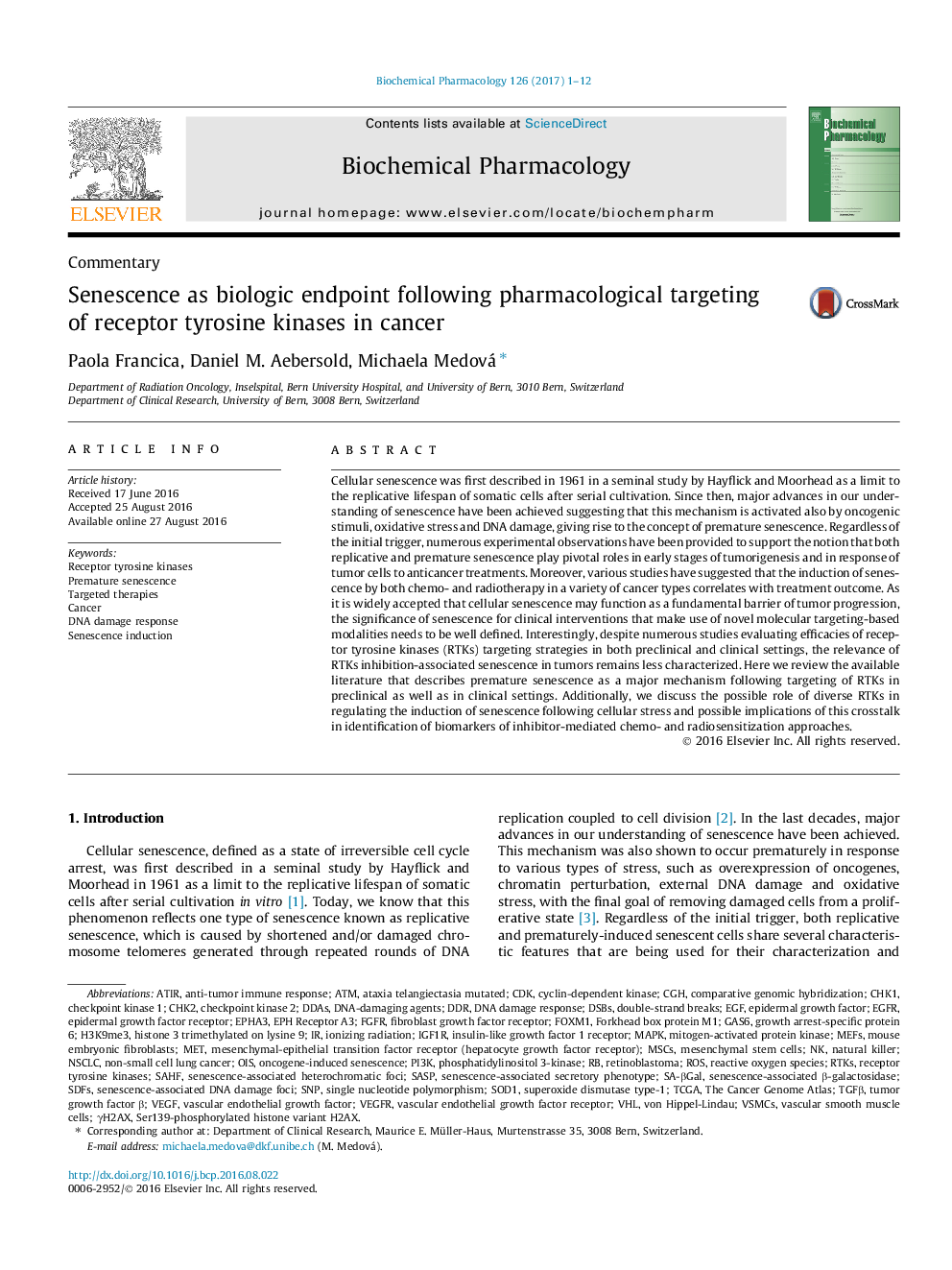| Article ID | Journal | Published Year | Pages | File Type |
|---|---|---|---|---|
| 5552345 | Biochemical Pharmacology | 2017 | 12 Pages |
Cellular senescence was first described in 1961 in a seminal study by Hayflick and Moorhead as a limit to the replicative lifespan of somatic cells after serial cultivation. Since then, major advances in our understanding of senescence have been achieved suggesting that this mechanism is activated also by oncogenic stimuli, oxidative stress and DNA damage, giving rise to the concept of premature senescence. Regardless of the initial trigger, numerous experimental observations have been provided to support the notion that both replicative and premature senescence play pivotal roles in early stages of tumorigenesis and in response of tumor cells to anticancer treatments. Moreover, various studies have suggested that the induction of senescence by both chemo- and radiotherapy in a variety of cancer types correlates with treatment outcome. As it is widely accepted that cellular senescence may function as a fundamental barrier of tumor progression, the significance of senescence for clinical interventions that make use of novel molecular targeting-based modalities needs to be well defined. Interestingly, despite numerous studies evaluating efficacies of receptor tyrosine kinases (RTKs) targeting strategies in both preclinical and clinical settings, the relevance of RTKs inhibition-associated senescence in tumors remains less characterized. Here we review the available literature that describes premature senescence as a major mechanism following targeting of RTKs in preclinical as well as in clinical settings. Additionally, we discuss the possible role of diverse RTKs in regulating the induction of senescence following cellular stress and possible implications of this crosstalk in identification of biomarkers of inhibitor-mediated chemo- and radiosensitization approaches.
Graphical abstractDownload high-res image (114KB)Download full-size image
